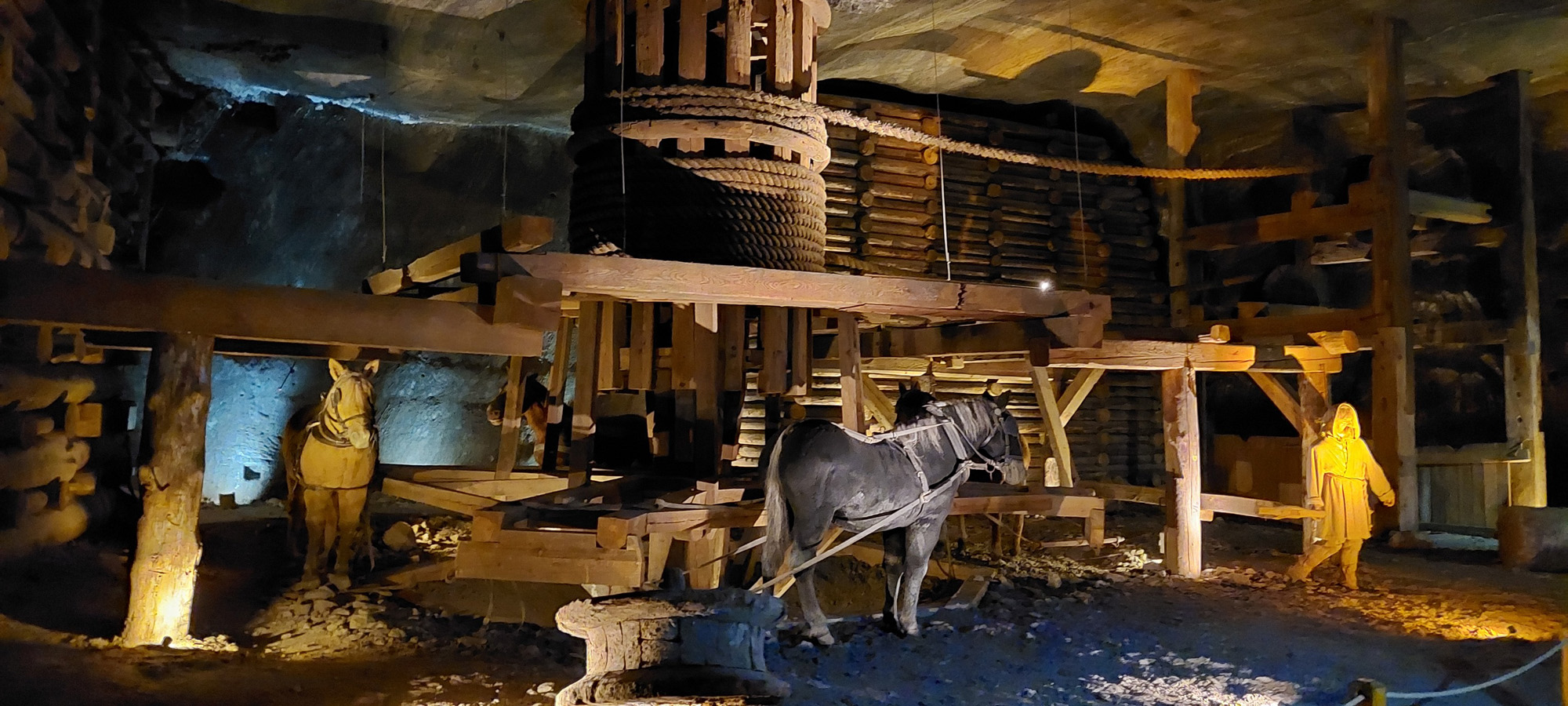 |
Jan & Jan-Jan's Rejseklubben is an exclusive club, with only 2 members, and we do NOT accept new members. |
 |

A legend about Princess Kinga, associated with the Wieliczka mine, tells of a Hungarian princess about to be married to Bolesław V the Chaste, the Prince of Kraków. As part of her dowry, she asked her father, Béla IV of Hungary, for a lump of salt, since salt was prizeworthy in Poland. Her father King Béla took her to a salt mine in Máramaros. She threw her engagement ring from Bolesław in one of the shafts before leaving for Poland. On arriving in Kraków, she asked the miners to dig a deep pit until they come upon a rock. The people found a lump of salt in there and when they split it in two, discovered the princess's ring. Kinga had thus become the patron saint of salt miners in and around the Polish capital. During the Nazi occupation, several thousand Jews were transported from the forced labour camps in Plaszow and Mielec to the Wieliczka mine to work in the underground armament factory set up by the Germans in March and April 1944. The forced labour camp of the mine was established in St. Kinga Park and had about 1,700 prisoners. However, manufacturing never began as the Soviet offensive was nearing. Some of the machines and equipment were disassembled, including an electrical hoisting machine from the Regis Shaft, and transported to Liebenau in the Sudetes mountains. Part of the equipment was returned after the war, in autumn 1945. The Jews were transported to factories in Litomierzyce (Czech Republic) and Linz (Austria). |
 |
Copyright © All Rights Reserved |
 |